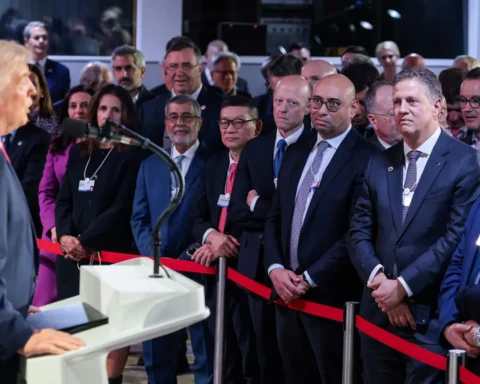It’s back-to-school season, which means renewed rhetoric from equity boosters lamenting insufficient public education funding and the “digital divide” between rich and poor.
But the last thing our schools need is immense public spending to put iPads and AI assistants in the hands of every child. In fact, the best way to help students is to strip classrooms down to the essentials: a whiteboard, classic books, and a great teacher.
Repeated studies prove what any parent with eyes can see: using screens limits reading comprehension, reduces attention spans, and, as Jonathan Haidt so convincingly put it in The Anxious Generation, increases mental health disorders.
Our 8th-grade ancestors from a century ago were tested on their ability to recount the cause of the War of 1812, name the countries that bordered Montenegro, and change the voice of verbs. Students at elite colleges today aren’t even able to read a full book.
It’s not that people have gotten dumber over the past 100 years, but rather that we aren’t taught to be smarter. And phones are a major culprit in educational decline. After all, why read when you can scroll, why memorize when you can Google, and why write when ChatGPT can spit out an essay for you?
Thankfully, reform-minded legislators across the country have recognized this educational crisis, and the cause of phone-free school zones is sweeping the nation.
Earlier this year, Governor Brian Kemp of Georgia signed the “Distraction Free Education Act,” sponsored by state representatives Scott Hilton and Jan Jones, banning personal electronics from bell to bell for kindergarten through 8th grade. The legislature in neighboring South Carolina similarly made state funding for schools dependent on whether they implement the phone-free policies spearheaded by State Superintendent Ellen Weaver and the state Board of Education. Meanwhile, North Carolina legislators Hugh Blackwell, Kyle Hall, Brian Biggs, and Joseph Pike sponsored legislation that will take effect next year to bar wireless devices during instructional time.
Lest anyone believe America’s southeastern coast is an outlier, in 2025 alone, 20 states enacted policies to limit or ban cell phone usage at school. Altogether, 30 states limit or encourage school districts to limit cell phone use in the classroom, up from zero states that had such policies in 2022.
This is a heartening trend, but why stop here? For years, “reformers” thought they were helping kids by handing tablets out to every possible student and advocating for take-home technology, as if what students need more time in front of a screen. Clearly, cell phones are not the only tech sapping students’ attention and reducing the quality of learning.
Outside of select classes designed to teach students how to use technology, the American education system should go back to the basics and remove as much tech from the classroom as possible. No more teaching history by TV. No more iPads for every student. And certainly no more AI “assistants” solving the problems kids should be working through themselves.
Technology has an important place in the world. But if our nationwide social experiment with tech-infused learning these past two decades has taught us anything, it’s that devices used to support students can unintentionally hold them back.
That’s because technology is designed to help us move faster and more efficiently, but a quality education demands the opposite—time and mental space. Working through a math problem, immersing oneself in history, contemplating why Atticus Finch is a hero—or what heroism even is—are done best without tech. Real learning happens in the natural cadence of human conversation and in the uncluttered and patient openness of the mind.
In this process, better than a phone is a friend working with you toward the same discovery. Better than a screen is a book that imposes slow reading, where one is forced to take the time to uncover the treasures within. Better than a large language model is a teacher who can inspire a young soul with the infectious love of wisdom and knowledge.
Removing tech from classrooms will help us reorient education to its true purpose, which is to form students in body, mind, and soul to become full and happy people.
Going back to the basics may scare some people, worried that tech-free students will fall behind in a rapidly changing world. But those fears are misplaced.
Especially at a young age, education is about more than training students how to exploit the power of tools. It’s about teaching them what they can achieve themselves. Our students are capable of so much, but they will never know it unless we take off the tech-training wheels.
* Jeremy Wayne Tate is the founder and CEO of the Classic Learning Test (CLT), a humanities-focused alternative to the SAT and ACT tests.






